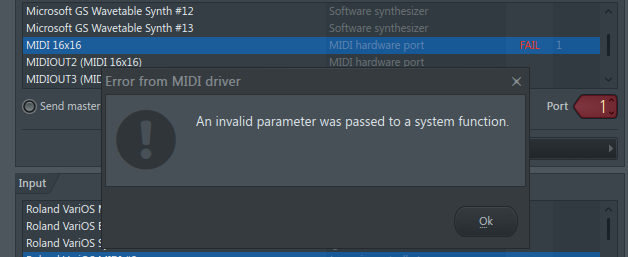Building a Vista Laptop for Legacy Music Software
Having got a VariOS module and also transitioning away from Windows as a whole for my main audio workstation, I felt it was time to set up an old laptop running an old version of Windows for all of the legacy software and drivers that some of the synthesizers I have, require.
The reason why I'm going with Vista (32-bit) instead of XP is because I want to see how well the software works. A lot of people will say XYZ won't work unless it's XP but not provide any citations for this. Unless software is coded very specifically, generally win32 is win32. I can understand if software won't work if you're running a *64-bit* version of Windows as this actually does change a good portion of things. For starters everything operates in WOW64 and you no longer get 16-bit support, 16-bit applications must be run on a 32-bit version of Windows. It's not unheard of for sneaky 32-bit programs to still throw in 16-bit code.
Anyways... the secondary part of this experiment to confirm my suspicions that all of the "XP" software will work fine in Vista 32-bit. I bet it would work fine probably even in Windows 7 32-bit, but I prefer Vista's UI and (if you can believe it) Vista is less bloated than Windows 7 at this point and easier to optimize as a result.
Hardware Build
IBM/Lenovo ThinkPad T61 (modded)
midiplus 16x16
There are multiple avenues around the problem of running old Windows software, but since I already have the hardware lying around, why not. We're going with an IBM/Lenovo T61 ThinkPad that's been modded into a T60 chassis with a 1600x1200 LED backlit display, which are getting harder to find because they've been snapped up by aircraft repair businesses for 787s and the like. Well, I guess it's 2023 now and I've not checked their availability for years now but still a weird/uncommon display panel regardless.
It has a T9300 CPU with 4 GB of RAM, since we're running a 32-bit OS we don't need to worry about ever upgrading it to 8 GB with the lesser common 4 GB DDR2 SODIMMs. No nvidia GPU, just regular intel which apparently is good enough for Vista Aero acceleration.
I previously was using a Roland A-880, but I ran into a lot of problems with it and I'm still trying to figure out why Roland didn't just leave all of the MIDI ports at the back (the four in the front are a waste!). *sigh*, well... the midiplus 16x16 solves all of that, and more. With thirty two 5-pin DIN ports you'll never need another mixer!
Modules Overview
Here's the modules in question, along with the corresponding programs for each one:
Yamaha FS1R
FS1R Editor
FSeqEdit
Javelin FS1R FSeq Editor
E-MU UltraProteus
MorphEdit
Roland VariOS
V-Producer
Jupiter-8 & TB-303 VariOS Software Modules
UniQuest VC-1
VariOS USB Driver
Software Overview and Application Support
And for the software to complement the modules:
FL Studio 12 (last version for XP/Vista but good enough for old machines)
Vocaloid 1 (Leon / Lola / Miriam)
| Application | Windows 98 | Windows XP | Windows Vista | Windows 7 |
|---|---|---|---|---|
| FL Studio 12 | No | Yes | Yes | Yes |
| Vocaloid 1 | ?? | Yes | Yes | Yes |
| FSeq Editor | No | Yes | No | Yes |
| Javelin FS1R FSeq Editor | ?? | Yes | Yes | Yes |
| FS1R Editor (K_Take) | No | No | Yes | Yes |
| V-Producer | Yes | Yes | Yes | Yes |
| MorphEdit | ?? | Yes | Yes | Yes |
| VariOS JP-8/TB-303 | Yes | Yes | Yes | Yes |
| UniQuest VC-1 | Yes | Yes | Yes | Yes |
Installation and Testing
The only application I had issues with (and I've also placed a note on the FS1R page) is Wouter's FSeq Edit. It straight up appears not to work with Vista despite working with XP and 7. Therefore I'm just going to use the Javelin FSeq editor and call it a day.
All of the VariOS software and drivers work fine in Vista (and I wager they would work fine in 7 x86 as well).
What HASN'T worked fine is the MIDIPLUS 16x16, on Vista all of the software applications will always spit out this error (doesn't matter if it's VariOS, FS1R Edit, FL Studio...)

"An invalid parameter was passed to a system function."
I've no idea why Windows Vista when combined with the MIDIPLUS 16x16 behaves like this, but on any other OS it appears to be fine? The documentation does state it's supposed to be compatible with Vista. It's anyone's guess... at any rate I don't believe I can incur the MIDI mixing functionality outside of the USB host so it'll be connecting to my macbook instead, and I'll try to connect the Vista laptop into it just by a regular USB to MIDI adapter.




